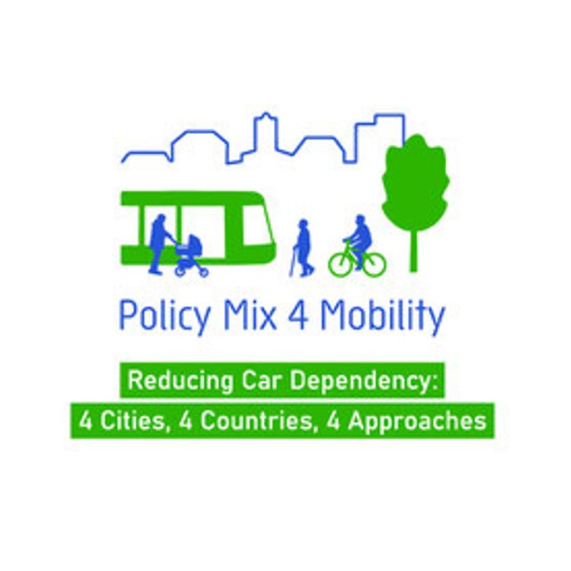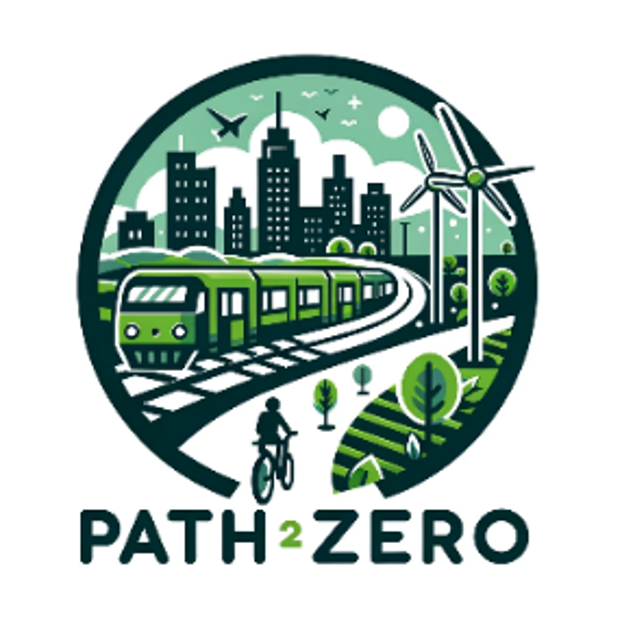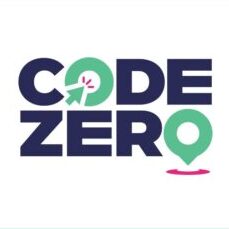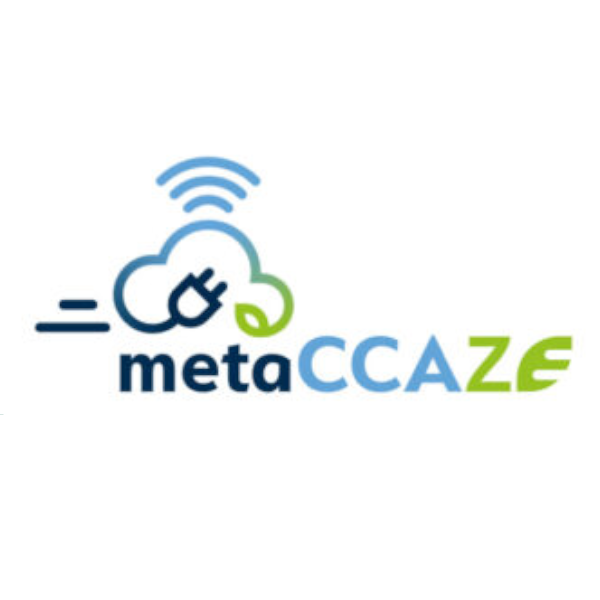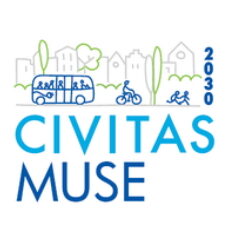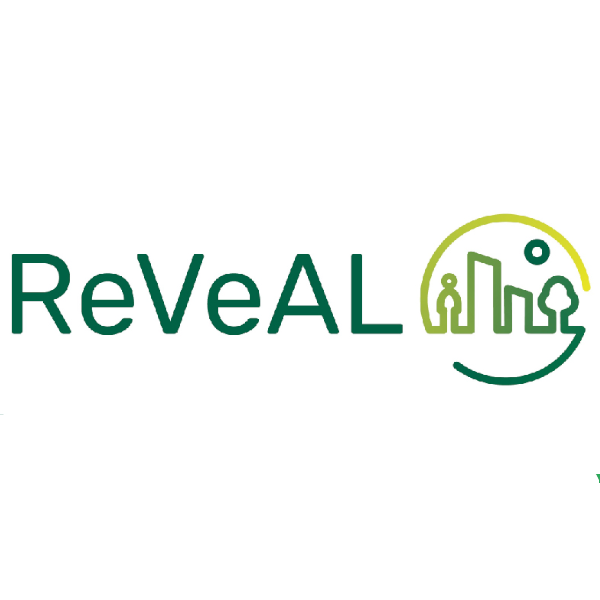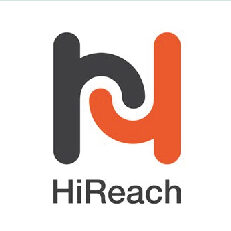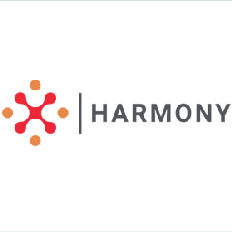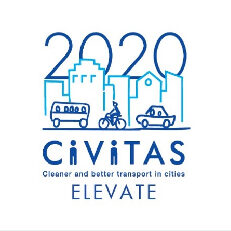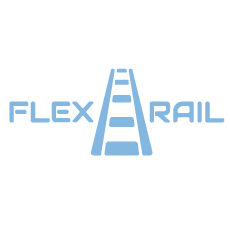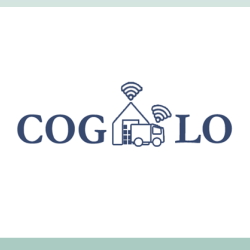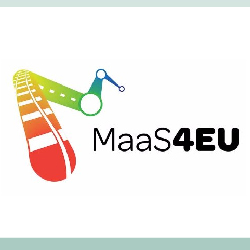TRT has been active in research studies since its founding and has a long experience in participating to research programs funded by the European Commission, from the fourth Framework Programme up to the new Horizon Europe. In the different projects, TRT usually cooperates with leading research institutes, universities and consultancy firms in most European nations. The participation in research projects in international consortia allows TRT staff to develop new methodological approaches, analyse the latest technologies made available on the market, develop innovative mobility policies, etc.
- Diffusing sustainable mobility options and reducing car dependency in urban areas PolicyMix4Mobility aims to create an inter- and transdisciplinary understanding of policy mixes and their effects based on policy packages that promote sustainable mobility practices and reduce car use in urban areas. This work is informed by a novel conceptual framework, bridging qualitative (case studies), quantitative (modelling) and transdisciplinary (urban labs, forum) methodological approaches to assess existing policy mixes and develop prospective ones. The project involves four European cities of different sizes and diverse socio-spatial conditions and policy contexts, located in Cyprus, Denmark, Germany, and Italy. While they differ in terms of progress towards sustainable mobility, but they share the common ambition to reduce car dependency and promote climate-neutral, socially just urban mobility systems. The project will first develop a conceptual basis for a better understanding of policy mixes aimed at reducing car dependency as well as a monitoring and evaluation framework for assessing the direct and indirect effects of such policy mixes. These will inform the empirical analyses performed through case studies in the four cities and the organization of urban labs. The case studies will enable the collection, analysis, and assessment of qualitative and quantitative data about policy mixes to reduce car dependency and their effects on mobility transitions. To improve the understanding of the effects of mobility and transport policy measures with a strategic approach, the project will also apply the MOMOS assessment tool. The Urban labs will develop in each city tools and methods for institutional, procedural, and social innovations, and actions plans for policy mixes to encourage their development and implementation. A key outcome of the project will be the Mobility Policy Mix Toolbox – a strategic resource designed to support cities and policymakers in navigating the complex politics of mobility transitions.The Consortium is led by IOEW (Germany), including TRT and 6 other partners from Cyprus, Denmark, Germany, Italy. TRT contributes to the project as it comes to: Introduction to the project by the coordinator Dr. Florian Kern (Institute for Ecological Economic Research – IÖW)
- Accelerating net-zero transformation by advancing Europe’s transport pathways and cross-sectoral synergies, with the assessment through a system dynamic modelling framework of current plans and the design of alternative pathways PATH2ZERO aims to provide a comprehensive knowledge base for developing, evaluating and benchmarking net-zero transport pathways, including cross-sectoral assessments and fostering global collaboration. The transport sector accounts for a third of total greenhouse gas (GHG) emissions in the EU, and current planned policies (at EU and national level) alone are expected not be sufficient to meet these targets. Accordingly, there is a need to “develop a new post-2030 energy and climate policy framework to implement the 2040 GHG ambition level” as well as to achieve net-zero GHG emissions by 2050. The project will first develop a common analytical framework for the description of national pathways, with a focus on transport-related content, to collect comparable descriptions of implemented and planned cross-sectoral mitigation plans and transport policy pathways, as well as data for each EU Member State. An interactive dashboard will provide an overview of the current policy frameworks in the EU Member States related to the decarbonisation of the transport sector, facilitating comparative analysis. An advanced modelling framework (STraDyM – Transport Strategies Dynamic Model) will be designed and developed to forecast transport sector activity and emissions up to 2050 at Member State level, integrating them with other sectors for in-depth GHG mitigation assessments, including equity and economic impacts. Existing national transport models (available in five countries) will complement the framework. Finally, the PET-VTT model will be used to model the national and EU level pathways and strategies, including all the energy sectors and mitigation of CO2 emissions (taking transport-related input from the StraDyM and national models). The modelling framework will allow to assess whether the pathways currently implemented and planned in national strategies are likely to achieve the target reduction on the national level, what impact these strategies bear in terms of fairness, costs and risks. Finally, alternative pathways will be designed and simulated, highlighting all target and pathway choices and their trade-offs to evaluate and assess their impacts and effectiveness. The Consortium is led by DLR (Germany), including TRT and 10 other partners from Finland, Spain, Greece, Hungary, Germany, UK, Norway, France, Italy. TRT contributes to the project as it comes to:
- CO-design of e-commerce last-mile DElivery and return options with ZERO emissions CodeZERO is a Horizon Europe research project coordinated by TRT whose objective is to investigate and develop innovative and sustainable zero-emission solutions for last-mile e-commerce deliveries and return options by integrating the perspectives of all various stakeholders. In addressing the question of more sustainable delivery solutions, CodeZERO will not only embrace the reduction of greenhouse gas and pollutants’ emissions from e-commerce deliveries but will also focus on other types of negative impacts such as those on safety, occupancy of public space as well as on delivery costs and working conditions of transport companies’ employees. Attention will be also given to understanding how alternative sustainable solutions might promote diversity, equality, and inclusion and integrate them within the EU transport sector. CodeZERO adopts an interdisciplinary approach combining both desk and field research as well as quantitative and qualitative analysis, following four phases: Analysis phase: understand current delivery options, stakeholder needs and constraints, and environmental impacts; Design phase: Develop consumer awareness campaigns, mechanisms to encourage sustainable choices, and a range of sustainable delivery/return options. Additionally, create a toolset for local authorities to accelerate adoption; Test phase: Pilot test the designed solutions and awareness guidelines in four European cities: Milan (IT), Utrecht (NL), Antwerp (BE), and Oslo (NO); Consolidation phase: Refine communication guidelines and delivery/return options based on pilot data. Develop an interactive tool for stakeholders to analyse the impact of adopting CodeZERO solutions
- Flexibly adapted MetaInnovations, use cases, collaborative business and governance models to accelerate deployment of smart and shared Zero Emission mobility for passengers and freight MetaCCAZE is a “Research and Innovation Action” Horizon Europe project to support the implementation of the Climate-neutral and Smart Cities Mission. Its overreaching mission is to accelerate the user-centred deployment of smart systems and services that combine electric automated and connected mobility and related infrastructure across European cities. The project organizes a series of MetaDesign activities with multisector-stakeholders and population groups to develop co-designed and shared zero-emission mobility use cases, collaborative business and governance models. A toolkit called MetaInnovations will be developed consisting of six main smart technologies (1. grid supply-fleet-demand; 2. AI-Datawarehouse; 3. inductive automated charging; 4. remote control centre for Avs and ADAS for parking and docking; 5. AI-driven re-scheduling tools for e-services; 7. Digital twin optimisation). These technologies will be implemented to improve passenger and freight services (PT, on-demand minibuses, bike sharing and deliveries) and related infrastructures (mobility and logistics hubs, traffic management centres, charging infrastructure) in 4 trailblazer cities (Amsterdam, Munich, Limassol, Tampere). Successful cases will be transferred, implemented and demonstrated in 6 follower cities (Athens, Krakow, Gonzo, Milan, Miskolc, Paris region). TRT is leader of WP1 that sets the ground by reviewing the current situation in the cities and defining the several activities that will help structuring the implementation of the trailblazer and follower cities as well as their cross-fertilization. TRT will also design the standard impact evaluation framework that will be used by the cities to assess the efficiency and to ensure that their impacts aligns with the MISSION and SUMP/SULP targets. Finally, TRT will also prepare the “MetaPolicy Package” to contribute to updates of urban and transport policies and feed the strategic research and innovation agendas (SRIA) of CCAM, 2ZERO, CIVITAS and other initiatives.
- CIVITAS MUSE – Coordination and Support Action for the CIVITAS Initiative The scope of CIVITAS MUSE is to support the CIVITAS community to increase its impact on urban mobility policy making and advance it to a higher level of knowledge, exchange, impact and sustainability, while guaranteeing essential high-quality support. Their main objectives include: to act as a destination for knowledge developed by the CIVITAS Community over the past twenty years To expand and strengthen relationships between cities and stakeholders at all levels To support the enrichment of the wider urban mobility community by providing learning opportunities To represent CIVITAS on the international stage TRT is responsible of the activities related to projects monitoring and evaluation, as well as for the development of policy recommendations. More specifically, the key objectives of TRT work are: Monitor results and implementation activities across CIVITAS and urban mobility projects with reference to what is new and emerging from the CIVITAS Community on urban mobility innovations and policy making. Enhance, consolidate, and bring to the next level the substantial body of knowledge that has and is continuously being produced by urban mobility projects, to improve its accessibility to practitioners. Provide a common realistic, user-friendly and effective evaluation framework as the reference point for mobility measures and concepts, supporting projects in its implementation to harmonise evaluation activities. Provide focused policy support to the CIVITAS Community, informed by Policy Groups contributing to Green Deal objectives, elaborating policy building blocks and content for MUSE learning and communications. For more information, check the previous Coordination and Support Action for the CIVITAS Initiative, CIVITAS Elevate
- CIVITAS REVEAL, Horizon 2020 project. Adding Urban Vehicle Access Regulations (UVARs) to the standard range of urban mobility transition approaches of cities across Europe ReVeAL is a “Research and Innovation Action” Horizon 2020 project financed by the European Commission. Its overreaching mission is to enable cities to optimise urban space and transport network usage through the selection as well as the implementation of new and integrated packages of UVAR (Urban Vehicle Access Regulation) measures. During the project, six pilot cities representing different sizes and challenges that are common to many other European cities, developed, implemented, tested and evaluated a set of UVAR measures. Cities were Helmond (NL), Jerusalem (IL), London (UK), Padova (IT), Vitoria-Gasteiz (ES) and Bielefeld (DE). The ReVeAL key output is a toolkit that help cities develop good practice UVARs, to help take urban road space from motorised vehicles and give them to people and sustainable mobility. The Toolkit consists of: A Decision Support Tool: 15 questions on the city’s goals and the area being considered for the UVAR, which gives a prioritisation of the building blocks (measures) that might be appropriate for your city. Fact Sheets on each Building Block: The factsheets include the definition of the building block, aspects relevant to timing, phasing and upscaling, time window options, complementary measure and enforcement options, equity issues and future considerations. There are also links to the other building blocks that might be relevant to use with each building block. Links to ReVeAL Guidance: The ReVeAL guidance covers aspects that are broader than a single building block such as the cross-cutting themes, and/or go into more detail on implementational issues than the factsheets allow. The different aspects are linked from the factsheets where relevant, as well as available in an online document. TRT was leading the “Monitoring and evaluation” work package with the aim of designing the evaluation framework, monitoring the implementation processes, as well as evaluating and assessing the impacts in the six pilot cities. TRT was also “pilot coordinators for the actions implemented in London and Padova. TRT experts were also involved development of the tool content and guidance, both as “transition area mentor” for mobility concepts and as “measure field leader” in the field of pricing measures. Finally, TRT was responsible for the technical development of the online Tool. For more information, Official website of the project. It contains an overview of the main elements of the project, the presentation of the 6 pilot cities and other useful resourches.
- HiReach, a project funded by the Horizon 2020 EU research program, addressed the specific mobility needs of segments of the population who are vulnerable to transport poverty and social exclusion Context and overall objectives of the project HiReach addressed the specific mobility needs of those segments of the population vulnerable to transport poverty and social exclusion such as people with temporarily or permanent reduced mobility, children, young and elderly people, women, migrants, ethnic minorities, low income, unemployed and people living in isolated and deprived areas. The project also analysed geographical and spatial elements affecting transport poverty to figure out inclusive mobility options that can properly work in urban-peripheral, peri-urban, rural, and remote or deprived territories. By combining different attributes of available transport concepts and bottom-up initiatives with smart operational schemes and IT applications, HiReach was aimed at the creation of viable business models for small scale, modular and easily replicable mobility services that can be provided at affordable prices or with minimum subsidies, targeting low-density and transport poor segments of the population. The HiReach mechanism for exploring, generating and testing inclusive mobility solutions was based on the creative work of startups and innovative entrepreneurs, but also on social innovation through the direct involvement of different social groups as co-owners of the proposed solutions. The overall ambition was to generate project results in strict linkage with developers and final users. Fieldwork activities have been conducted in 6 European study regions: Counties of Esslingen and Göppingen (Baden-Württemberg, DE), Naxos and Small Cyclades (GR), Inner Area Southern Salento (Puglia Region, IT), Guarda (PT), Buzau (RO), North and South-East Luxembourg. TRT was the project coordinator, leading a 9-partner international consortium. Summary of the project work The first analytical phase of the project explored travel behaviour and social habits of targeted vulnerable groups while assessing their travel demand and mobility needs. An extensive desk research across the EU Member States condensed available data, recent trends and scientific literature associated with transport poverty by targeting spatial specificities, mobility socio-economic landscape(s) as well as visible and hidden mobility needs and attitudes. This step required also the (re)-elaboration of the concept of transport poverty including a complex assessment of inequality and disadvantage, distinguishing between transportation-related disadvantage, social disadvantage and social exclusion. A cornerstone of the HiReach approach was the micro-analysis conducted on the field in six different countries. A set of 47 interviews with experts and stakeholders and the direct involvement of 166 vulnerable users through different focus group sessions served as validation of desk research activities and mobilization of local communities as co-owners of the solutions. In particular, TRT conducted fielwork activities in the Southern Salento area, focusing on the transport challenges of women and people with reduced mobility. A visual and descriptive representation of the identified needs and attitudes, featuring also mixed vulnerability characteristics and traits, was transposed into the elaboration of 6 Personas (see HiReach Insight Package). The following exploratory phase critically assessed the limits and drawbacks of the current supply of public […]
- HARMONY, a project funded by the Horizon 2020 EU research program, applies an holistic approach for providing innovative spatial & transport planning tools to metropolitan and regional authorities, in order to support decision-making and lead a sustainable transition to a new mobility era The main objective of the HARMONY project was to develop a new generation of harmonised spatial and multimodal transport planning tools, modeling comprehensively the dynamics of the changing transport sector and spatial organisation, and enabling metropolitan area authorities to lead the transition to a low carbon new mobility era in a sustainable manner. The main activities of the project were related to: Designing and develop a model suite (the HARMONY MS), integrating land-use models (strategic/long-term), people and freight activity-based models (tactical/mid-term), and multimodal network models (operational/short-term) allowing for vertical planning. Identify new mobility services, concepts and technologies for people and freight for urban, suburban, and regional transport and their business models. Implementing demonstrations with electric AVs, robots, and drones for freight delivery to understand in real-life their requirements. Recommending updates for spatial and transport strategies and SUMPs to deal with mobility transition to decarbonise the transport sector. Applying and validating the model suite on six EU metropolitan areas: Rotterdam(NL), Oxfordshire(UK), Turin(IT), Athens(GR), Trikala(GR), Upper Silesian-Zaglebie Metropolis(PL). The consortium, coordinated by the University College of London, consisted of 21 partners. TRT led the activities related to spatial and transport strategies and SUMPs, and it was involved in the technical activities to design and develop the modelling suite. Furthermore, TRT experts supported the application in the metropolitan area of Turin (IT). HARMONY Model Suite The HARMONY Model Suite has been designed and implemented to enable end-users such as planners, decision makers, researchers and transport operators/providers to couple/link independent models and analyse a portfolio of regional and urban interventions for both passenger and freight mobility, including policies and capital investments, land-use configurations, economic and sociodemographic assumptions, travel demand management strategies and new mobility service concepts. The conceptual architecture of the HARMONY model suite allows to integrate new and existing sub-models with a multi-scale approach, consisting in the Strategic Level (Long-term), the Tactical Level (Mid-Term) and the Operational Level (Short-term). The Strategic Level is mainly composed of regional economic, demographic forecasting, land-use, spatial freight interaction and long-term mobility choice models. The Tactical level is made of a fully agent-based passenger and freight demand model, representing passenger and freight agents’ choices. The Operational Level is representing the transport supply at network level, with demand interactions at high granularity. The Moby App Within the HARMONY project, a new approach for travel demand data collection has been used: a free smartphone application, the MobyApp, was developed for Android and iOS. Downloading the application, the survey participants need only to start the tracking of their trips and activities, and the whole travel diary is tracked by the application. Moreover, a few complementary questionnaires are included in the application, to collect additional information on transport behaviours. The travel survey was performed in Turin and Oxfordshire: […]
- CIVITAS ELEVATE, Horizon 2020 project – Increasing the Europe-wide impact of the CIVITAS projects CIVITAS ELEVATE is part of the CIVITAS initiative, a network of cities dedicated to cleaner, better transport in Europe and beyond that has implemented over 800 measures and urban transport solutions in more than 80 living lab cities Europe-wide. The knowledge gathered through these practical experiences is supported by a number of research and innovation projects looking at ways of building more resource efficient and competitive transport. CIVITAS ELEVATE’s scope was to increase the Europe-wide impact of the CIVITAS 2020 and other ongoing projects on urban mobility policy making. The project aimed at advancing the CIVITAS community to a higher level of knowledge, exchange, impact, and sustainability while guaranteeing essential high-quality support. It aimed to enrich the current CIVITAS generation and to feed future EU initiatives while building a European mobility community able to navigate transition. The CIVITAS ELEVATE project, active from April 2019 until April 2023, was carried out by a 6-partner consortium that includes M21 (leader), DTV, ICLEI, INOVA+, Breda University of Applied Sciences, and TRT. TRT was responsible of the evaluation and advancing knowledge activities, providing guidance and support to the stakeholders from across CIVITAS 2020. This enhanced the knowledge that the CIVITAS initiative has been building year after year, to improve urban mobility policy making and planning. TRT is also part of the new CIVITAS Coordination and support action MUSE
- Flex-Rail – Paradigm shifts for railway – Technology uptake strategies for a lean, integrated and flexible railway system Shift2Rail (S2R, shift2rail.org) develops the building blocks for the future rail system, as envisaged in the Multi‐Annual Action Plan (MAAP). However, S2R’s work programmes need to be continuously monitored and updated to ensure that they optimally make use of the potential of new technological innovations and developments rising in the society, other industries and specifically within the rail sector. The Flex‐Rail project has the objective of identifying and assessing technological possibilities and innovative concepts that can shape rail operating and business models, aiming to contribute to the formulation of required paradigm shifts for the rail sector. In this view, Flex-Rail has the vision to target a lean, integrated and flexible railway system to stimulate further innovation of the rail sector and ensure that rail the services can address the future user needs. In particular, the Flex-Rail project addresses the following aspects: forecast the evolution of key fundamental technologies and identification of technical risks and potential blocking points; analysis of possible achievement of future impacts, through the definition and implementation of an impact assessment framework and modelling tool for rail scenario and transition pathways; formulation of technological concepts for a future rail system scenario developed on a participatory process involving the users of the rail system. Also, the scenarios build on the analysis of trends and innovations happening in other transport sectors; assessment of business feasibility and analysis of the current safety requirements. The Flex-Rail project develops an in‐depth overview of the state of the art of ideas and technological trends related to innovations of the transport industry and non‐transport sector technologies. As such, it constitutes a knowledge basis for subsequent activities focussed on (i) the definition of key performance indicators, which are key assessment components, (ii) the identification of gaps and development of future (rail system) transition pathways and (iii) the impact assessment of these transition pathways and scenarios. A dedicate interactive website has been created to explore technological trends an innovations relevant for rail transport(*). On these basis, a dedicated assessment framework has been designed to determine the impact of innovation packages and transition pathways on a number of key performance indicators for rail transport and per System Platform Demonstrator (SPD), as defined in S2R’s MAAP. A gap analysis for each SPD has been developed, considering the fulfilment of user’s requirements of rail and modal competitors and for different market segments. This has allowed to identify potential market segments and rail modal share growth. By evaluating such possible paradigm solutions, with aligning or enabling trends and technologies, future scenarios have been developed and assessed on the basis of an open-innovation process for collecting additional future requirements. Among its activities, Flex-Rail mapped projects, studies, initiatives and experts’ groups outputs related to new technologies and trends within and outside the transport sectors that may directly and indirectly have an influence on the rail transport sector. Mapping such these activities ensured coherence with the worldwide […]
- COG-LO – COGnitive Logistics Operations through secure, dynamic and ad-hoc collaborative networks The main goal of COG-LO, an innovative project on ICT logistics solutions funded by the European Programme Horizon 2020, was to create the framework and tools to implement cognitive and collaborative ICT solutions on future logistics processes, embracing many contexts and environments. By exploiting COG-LO, it was possible to achieve several benefits, such as: increase the load factor, reduce the cross-border parcel delivery costs, reduce the ratio between distance covered by the logistic vehicles and the number of pickups, implement quick adaptive response management to dynamic customer requirements. The project outcomes were validated in three different pilots, covering multi-modality, inter-country deliveries and urban logistics operations. The international partnership involved 14 public and private actors working both in transportation and ICT fields across eight European countries. TRT leaded WP2 (Cognitive logistics framework), capitalizing on its vast experience on freight transport and logistics research projects. It also brought its long experience in the field of quantitative analysis, strategic planning, KPIs assessment by supporting the technological requirements analysis in one of the pilots developed along the project (the EKOL case on intra-terminal operations and multimodality solutions). [tw_button icon=”” link=”https://www.trt.it/archivio-progetti/” size=”small” rounded=”false” style=”flat” hover=”default” color=”#223468″ target=”_self”]Projects[/tw_button]
- End-to-End Approach for Mobility-as-a-Service tools, business models, enabling framework and evidence for European seamless mobility MaaS4EU project’s objective is to explore the concept of Mobility as a Service (MaaS) which represents a radical change in the mobility sector. In this concept the mobility integrator (MaaS Operator) brings together differents mobility service providers (Mobility Service Provider) and provides the end-users with access to an integrated digital interface (MaaS4EU Mobility Platform), allowing them to plan and pay for their trips in a one-stop-shop. Maas4EU aim is to deeply analyze the possibilities for the implementation of the Maas concept and set the framework by defining sustainable business models that support the cooperation across transport stakeholders, understanding user needs and choices, implementing the required technological infrastructure and identifying the enabling policy and regulatory frameworks The project focuses in particular on the four key aspects related to: TRT’s activities within the MaaS4EU project mainly focused on supporting the design of the Business Models related to the 3 pilot projects. TRT analysed the legal and policy framework enabling the MaaS ecosystems. TRT was also responsible for the communication and dissemination activities of the project. MaaS4EU foresees 3 real life demos in the following areas: Budapest (Toll Service is the MaaS operator) (Urban & Cross-border trips) Greater Manchester (TFGM is the MaaS operator) (Urban & Intercity trips) Luxembourg (SLA is the MaaS operator) (Cross-border & Urban trips) For more information MaaS4EU – Pich presentation MaaS4EU – Brochure Final conference and video recording of the event Paper: Mobility-as-a-service: insights to policymakers and prospective MaaS operators Mobility as a Service (MaaS) and Sustainable Urban Mobility Planning – Topic Guides, Guidelines for developing and implementing a Sustainable Urban Mobility Plan (2nd edition) – Year 2019 Making European cities greener, Towards clean and smart mobility – Horizon 2020 – Year 2019

